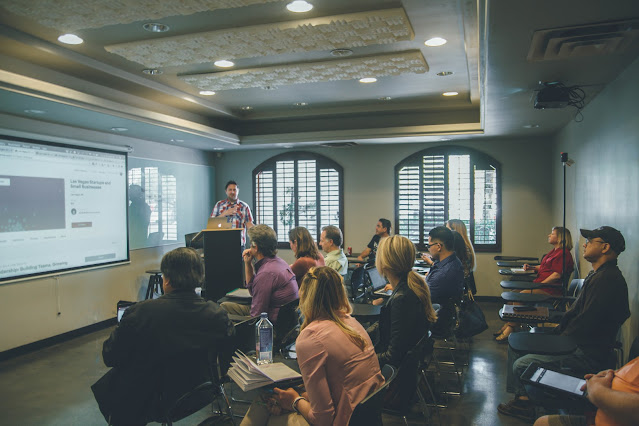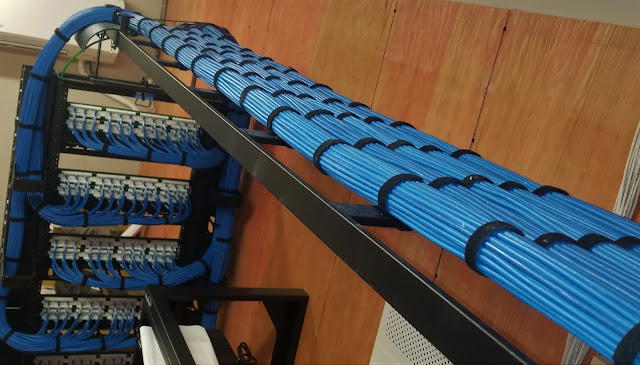Immersive Learning Environments with Audio Video Integrators in Educational Technology
In the heart of today's classrooms, a profound transformation is
taking place – a metamorphosis fueled by the symphony of audio and visual
elements. Imagine stepping into a modern educational space, where the
traditional confines of learning dissolve, giving birth to an immersive
educational experience. The air is charged with anticipation as audio video integrators takes center stage,
weaving a tapestry of interactive and captivating lessons. This is not just a
classroom; this is the canvas where education and technology converge to create
something extraordinary.
As we embark on this journey, let's unravel the concept of audio video
integrators in educational technology. It's more than just a marriage of sounds
and images; it's the catalyst for a revolution in learning environments. It's
about breaking free from the static nature of traditional classrooms and
embracing a dynamic, immersive realm where education transcends boundaries.
The Educational Landscape Transformed
In the vast landscape of education, technology has become an
omnipresent force, reshaping the way we teach and learn. Let's take a moment to
peer into the realm of educational technology – a landscape where traditional
methods are being redefined. The evolution is palpable, with immersive learning
environments emerging as the vanguard of educational innovation.
As we contrast the traditional classroom settings with these immersive
learning environments, the distinction becomes clear. Gone are the days of
static chalkboards and rows of desks; here, interactive smartboards come to
life, transforming lessons into dynamic experiences. The shift is seismic, and
the impact reverberates in the engaged expressions of students navigating a
landscape where education is no longer confined to textbooks and lectures.
Components of Audio-Video Integration in Education
Audio Elements
Step into the realm of immersive auditory experiences, where the echo
of traditional lectures is replaced by a symphony of high-quality sound
systems. It's not just about hearing; it's about feeling the resonance of
knowledge. Audio processing units take center stage, optimizing sound quality
to ensure that every word uttered in the classroom carries the weight it
deserves. The immersive auditory experience becomes the backbone of an
environment where learning is not just seen but heard with clarity and impact.
Video Elements
Visualize the evolution of display technologies, where interactive
smartboards unfold a new chapter in visual engagement. It's not just about
watching; it's about interacting with content that comes to life. Video
processing units play a pivotal role, enhancing the visual journey with
advancements that go beyond traditional screens. In this landscape, visual
content becomes more than just a supplement; it becomes the canvas upon which
ideas are illustrated and concepts are brought to life.
The classroom is no longer a static space; it's a dynamic arena where
audio and video elements converge to create an immersive tapestry of learning.
The transformation is not just technological; it's a reimagining of education
itself.
Impact on Teaching and Learning
In the dynamic realm of education, the impact of audio-video
integration extends far beyond the mere incorporation of technology; it
reshapes the very essence of teaching and learning. Let's delve into the
transformative effects it has on both educators and students.
Enhanced Teaching Methods
Imagine a classroom where teaching transcends traditional boundaries.
Audio-video integration becomes the cornerstone of varied teaching methods,
introducing a spectrum of multimedia presentations and interactive discussions.
Educators seamlessly weave through a tapestry of visual and auditory aids,
simplifying complex concepts for students. The classroom is no longer confined
to the textbook; it's a canvas where every lesson unfolds as a multisensory
experience.
Student Engagement
At the heart of this transformation lies the essence of student
engagement. Interactive content becomes the catalyst for sustained interest,
capturing the imagination of students. The learning experience becomes more
than a passive absorption of information; it evolves into a journey of
curiosity and active participation. In this immersive environment, students are
not just spectators; they are active participants, shaping their educational
voyage with every interaction.
Real-world Applications
As we move beyond theoretical considerations, the real-world
applications of audio-video integration in education come to life, reshaping
the way we perceive classrooms and learning experiences.
Virtual Reality (VR) in Education
Step into a classroom where the boundaries of traditional learning are
transcended by the integration of VR technologies. Virtual field trips take
students on immersive journeys, providing firsthand experiences that extend
beyond the confines of the classroom. Subjects like history, science, and art
come alive as students don VR headsets, making learning an adventure rather
than a lecture.
Augmented Reality (AR) in the Classroom
In the augmented reality-enhanced classroom, traditional textbooks are
no longer static pages but gateways to interactive content. AR applications
enrich learning materials, offering a layer of interactivity that enhances
comprehension. Students witness historical events unfold, observe scientific
phenomena, and explore artistic masterpieces – all through the lens of
augmented reality.
Overcoming Challenges and Future Prospects
The path to transforming education through audio-video integration is
not without its challenges, but innovation paves the way for solutions.
Challenges in Implementing Audio-Video Integration
Integrating audio-video systems in educational environments comes with
its share of challenges, from technical hurdles to adapting teaching
methodologies. The transition requires careful navigation, acknowledging the
complexities involved in reshaping traditional learning spaces.
Technological Solutions
Enter the realm of solutions, where innovation meets the challenges
head-on. Technological advancements offer innovative solutions, from
streamlined integration processes to improved hardware and software. The future
prospects of audio-video integration in education hold the promise of continued
innovation, ensuring that the transformative journey is not just a momentary
leap but a sustained evolution.
Teacher and Student Perspectives
Teacher Experiences
Step into the shoes of educators who have become pioneers in the realm
of audio-video integration. Through their experiences, we gain insights into
the transformative journey they've undertaken. Picture a teacher who, armed
with technology, has transcended the traditional role, becoming a guide through
immersive landscapes of knowledge. Anecdotes come to life, showcasing the
moments of triumph and challenges faced. These educators are not just adapting;
they are shaping the future of education through the lens of audio and video
integration.
Student Feedback
The heartbeat of any educational transformation is the impact it has
on students. As we delve into student feedback, a mosaic of experiences
unfolds. Immersive learning isn't just a novel concept; it's a game-changer.
Students express how interactive content sparks curiosity, fosters engagement,
and transforms mundane subjects into captivating adventures. The feedback isn't
just about satisfaction; it's about tangible improvements in academic
performance. The classroom is no longer a place of passive learning; it's a
vibrant hub where students actively participate in their educational journey.
Conclusion
In the grand tapestry of education, audio-video integration emerges as
a brushstroke that transforms traditional classrooms into immersive learning
environments. As we recap the transformative role we've explored, it's clear
that the classroom is no longer confined to four walls; it's a dynamic space
where technology becomes an ally in the pursuit of knowledge.
FAQ’s
How does audio-video integration benefit different learning styles in
the classroom?
Audio-video integration caters to diverse learning styles by providing
a multisensory experience. Visual aids and interactive content appeal to visual
learners, while high-quality sound enhances comprehension for auditory
learners.
What challenges do educators commonly face when implementing
audio-video integration, and how can they overcome these hurdles?
Educators often encounter challenges such as technical issues,
adapting to new teaching methodologies, and ensuring accessibility. Overcoming
these hurdles requires training, support, and a gradual integration approach.
Are there privacy concerns associated with the use of audio-video
integration in educational settings?
Privacy is a valid concern. Striking a balance between immersive
learning experiences and safeguarding student privacy involves implementing
secure technologies, educating stakeholders, and adhering to data protection
regulations.
How do students respond to immersive learning environments, and does
it have a measurable impact on academic performance?
Student feedback indicates increased engagement and satisfaction with
immersive learning. Many studies show a positive correlation between
interactive, audio-visual education and improved academic performance.
What role do emerging technologies like virtual reality (VR) and
augmented reality (AR) play in shaping the future of audio-video integration in
education?
VR and AR contribute significantly to the future of education by
providing virtual experiences, enhancing real-world applications, and making
learning more interactive. The integration of these technologies holds great
promise for transforming the educational landscape.




Comments
Post a Comment